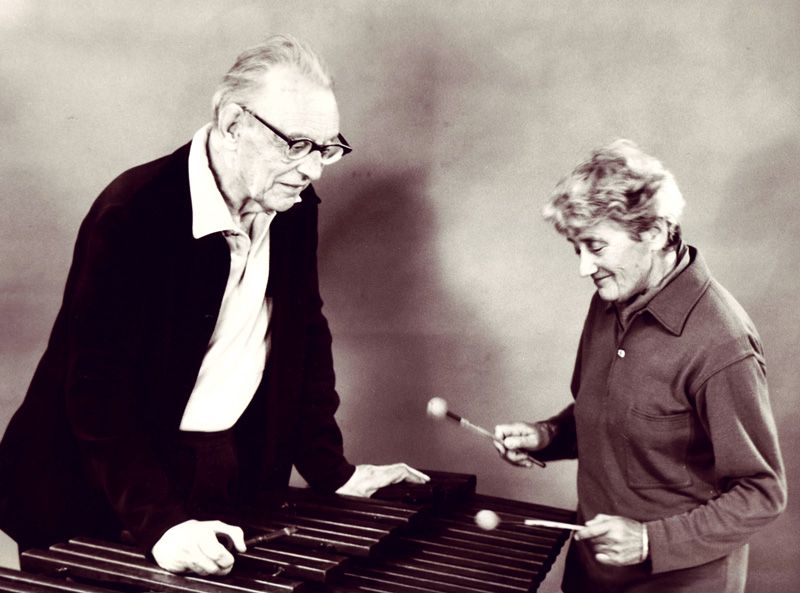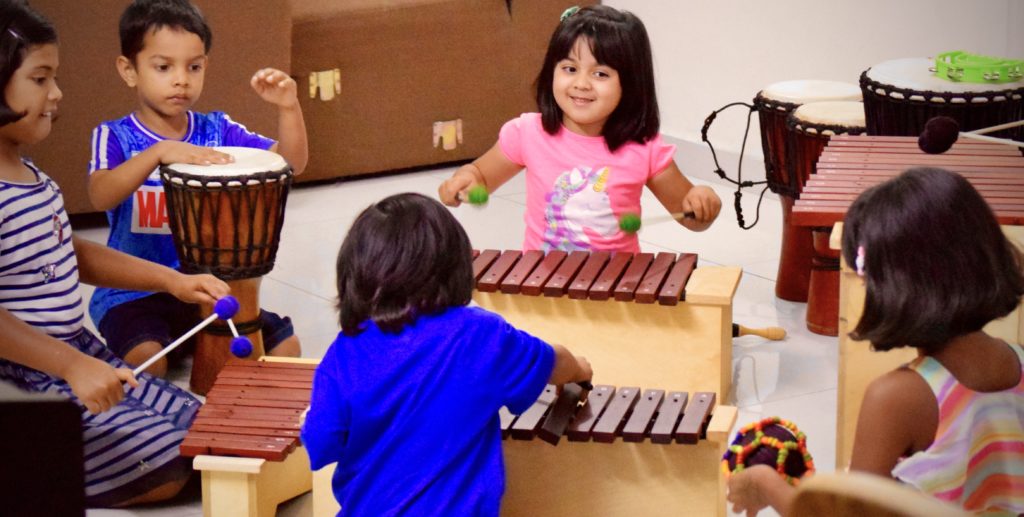During the 1920s and 30s, German composer Carl Orff and teacher Gunild Keetman developed a novel approach to music education – one that was built around a child’s natural world of play and exploration. This approach, known as Orff Schulwerk or the Orff Approach, focuses on developing every child’s natural inclination towards rhythm, movement and melody on a level that they can easily grasp. The Orff Approach has had a worldwide impact over the past century, and continues to impart holistic musical training through singing, dancing, acting and playing simple instruments.


Children in a Orff classroom
The Orff Approach makes use of a rich variety of folk songs, rhymes, poems and stories which provide a channel for children to connect with their cultural backgrounds. These are sung, acted out and accompanied with child-friendly instruments such as xylophones, maracas, chimes and drums. Improvisation and free movement are encouraged during these vibrant sessions.
Popular Orff activities include playing rhythms on household objects, body percussion, and immersive storytelling. All sessions are inclusive and collaborative, ensuring that all the learners involved receive an engaging experience. Each activity is an opportunity for children to explore the world of sound through play.
Sing, Move & Play
Our Sing, Move & Play programme draws tremendous inspiration from the Orff Approach, whether we’re teaching in a physical classroom or in an online setting. Tāla seamlessly blends Orff principles with modern technology to create a fun and friendly learning environment, where children can express themselves without any inhibitions. Through our curriculum, we aim to make these principles relevant to the Indian context with concepts that relate to the local culture and folklore.
Tāla Music Academy
143, 5th cross, Jyothi Nagar, Hormavu Agara, Bangalore 560043
- info@talaeducation.com
- +91 9731055913
- +91 9945740680

